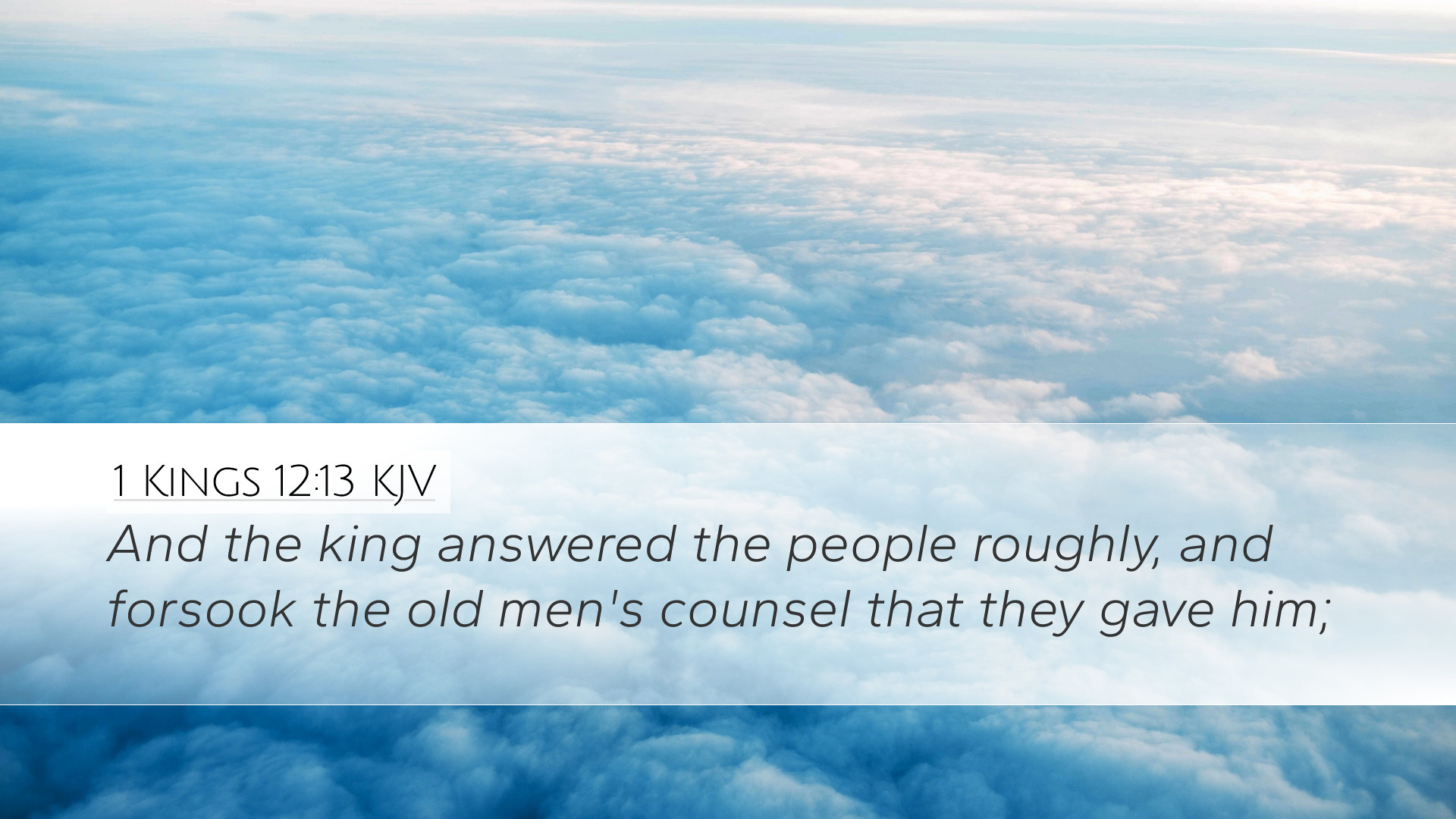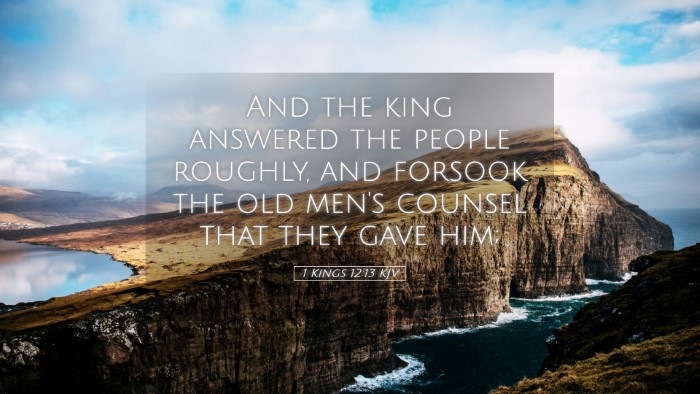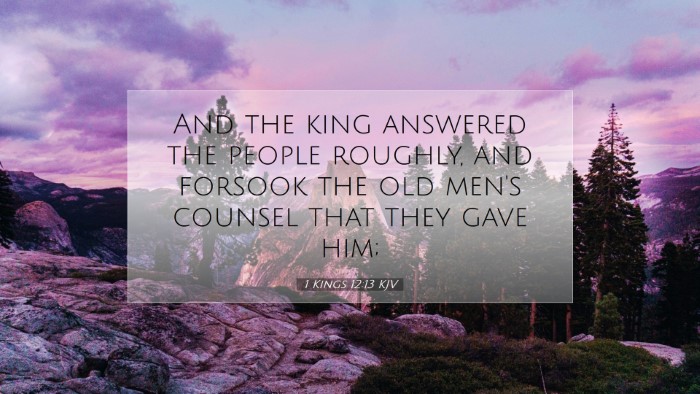Commentary on 1 Kings 12:13
Verse: 1 Kings 12:13 - “And the king answered the people roughly, and forsook the old men’s counsel that they gave him; and consulted with the young men that were brought up with him, that stood before him.”
Introduction
The narrative of 1 Kings 12 reflects a pivotal moment in the history of Israel, marking the beginning of the separation between the northern and southern kingdoms. This verse encapsulates King Rehoboam's reaction to the people of Israel's request for lighter burdens and showcases the theme of leadership, wisdom, and the consequences of disregarding sound counsel.
Contextual Background
This passage occurs after the death of King Solomon, during a time when the people approached Rehoboam, Solomon's son, seeking relief from the heavy yoke imposed upon them. The leaders of Israel's request posed a critical test of Rehoboam's capabilities as a ruler and his responsiveness to the needs of his subjects.
Analysis of Key Themes
1. The Importance of Counsel
Matthew Henry notes that Rehoboam had the opportunity to heed the advice of wise and experienced elders, yet he chose to forsake their counsel. This decision underscores the vital role that wise counsel plays in governance and decision-making.
- Contrast Between Wisdom and Youth: Henry emphasizes that while young men may bring enthusiasm and vigor, they often lack the wisdom gained through experience.
- Roughness in Leadership: The king's decision to respond roughly highlights the dangers of a lack of empathy and understanding in leadership roles.
2. Consequences of Rehoboam's Choices
Albert Barnes elaborates on the ramifications of Rehoboam's decisions, indicating that his choice to dismiss the elders' advice essentially set the stage for the fragmentation of Israel. His reign is marked by conflict and division, which can often result from poor leadership decisions.
- Division of the Kingdom: Barnes points out that the disdain Rehoboam showed the request of the people led to a larger schism, sundering the nation into the northern and southern kingdoms.
- Reflection on Authority: The actions of Rehoboam serve as a warning for leaders about the necessity of being attuned to the voices of the populace.
3. The Role of Peer Influence
Adam Clarke provides insight into the influence of peers in decision-making. Consulting with those who are close in age but lacking in wisdom can lead to misguided decisions. Clarke critiques Rehoboam for this reliance on youthful advisors who may prioritize approval over prudence.
- Peer Pressure in Leadership: Rehoboam succumbs to the pressure of pleasing his friends instead of acting in the best interest of his nation.
- Sway of the Younger Generation: Clarke suggests that contemporary leaders must balance the vibrancy of youthful counsel with the weight of experienced wisdom.
Lessons for Modern Leadership
The insights gleaned from 1 Kings 12:13 are applicable to present-day leaders in various fields, from religious to governmental authorities. The passage serves as a reminder that:
- Seeking and valuing wise counsel is crucial for sound decision-making.
- Responding with understanding can foster trust and respect between leaders and their constituents.
- Leaders should strive to balance the enthusiasm of youth with the wisdom of age, ensuring a holistic approach to governance.
Conclusion
1 Kings 12:13 stands as a powerful testament to the importance of wisdom and restraint in leadership. Rehoboam's failure to heed the counsel of the elders and his subsequent rough response to the people exemplifies the consequences of poor decision-making and the detrimental effects it can have on a community. As modern leaders reflect on this passage, they are encouraged to cultivate an environment where counsel is sought and valued, recognizing that true leadership requires humility, wisdom, and a deep understanding of the needs of the people.


